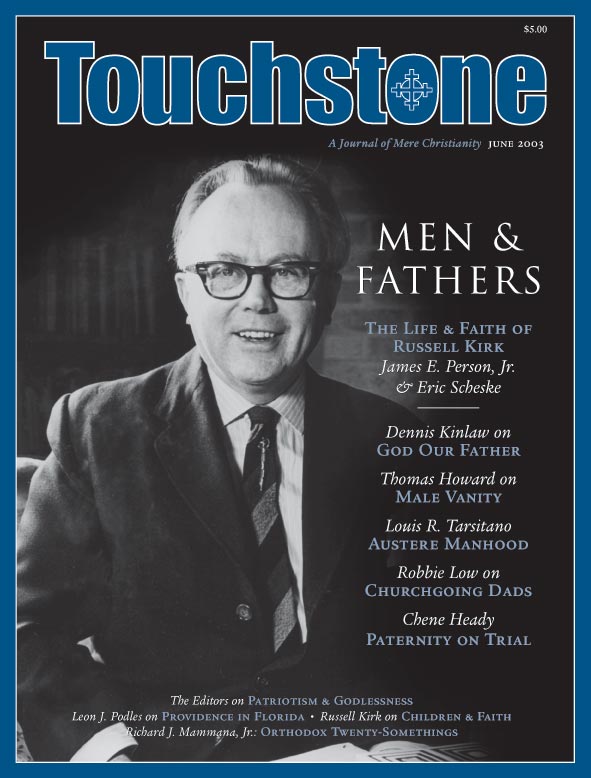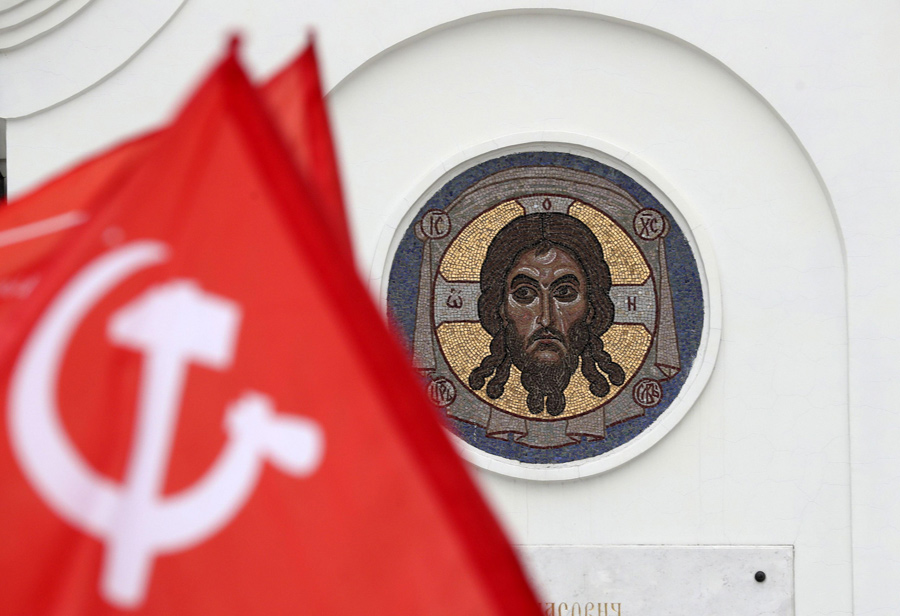Feature
Father’s Day in Court
Chene Heady on Paternity Suit Misfits
I began to suspect that it would be an odd Father’s Day when I had trouble locating an ordinary “To Father (From a Distance)” card at the Bloomington Factory Card Outlet. Scores of cutting-edge Father’s Day cards celebrating the paternal virtues of “Mother,” “Uncle,” “Teacher,” and “Neighbor” obscured, and effectively hid, the conventional card I wanted. It seemed the greeting card companies had finally made our national debate over the nature of fatherhood part of the holiday itself.
My card was not yet in the mail and this issue had not yet passed from my mind when, the week before Father’s Day, I was drafted into the jury pool for a paternity case. For once, my premonitions had proved correct. It was going to be an odd Father’s Day.
In the courtroom, I kept myself awake by envisioning the jury selection process as a social allegory. Each team of lawyers was going to use an exhaustive battery of questions to test potential jurors and would likely dismiss many of them as objectionable. The remainder would comprise the six-member jury and would be granted the authority to determine a father’s fatherhood and a child’s paternity. In television terms, the court was going to determine which Americans were fit to define fatherhood, by means of a Survivor-style competitive game show.
The Survivor analogy has its limitations (notably, the authorities vote off the contestants, and most contestants play with the intent of being voted off ), but at a basic level it holds: The hosts give the participants a series of challenges, and based on how well they perform these challenges and how much they ingratiate themselves, they either remain or are cast off. The show promised to prove interesting, and in societal terms the stakes were high. The contestants for this season were: (1) Tammy, an opinionated 40-year-old stay-at-home mom; (2) George, a 35-year-old minister with close-cropped, conservative hair; (3) Rachel, a 25-year-old research chemist; (4) Lucy, a regal-looking 63-year-old marriage counselor; (5) Eddie, a bearded 32-year-old bicycle repairman who loves National Public Radio (NPR); (6) Bob, a balding 40-year-old warehouse employee, who was eliminated out of the gate when he admitted he had recently been a paternity case defendant; (7) Kathy, a middle-aged working mother; (8–9) Maureen and Kelly, rather indecisive, middle-aged white-collar workers; (10) Rebecca, a youngish stay-at-home mom who has kept her maiden name; and (11–12) Mary, a quiet, elderly woman, and myself, who together comprised the audience, since the attorneys happened to agree on a jury before they got to us.
The active contestants would face three difficult philosophical challenges.
Fluid Fatherhood
The first skill challenge was a test of mental flexibility. It was administered, as were all the key skill challenges, by the defense attorney. She was a tall, middle-aged brunette, with the hair and clothes of a flapper, and the voice of a bicycle horn.
She began: “Many people assume that if you caused a child to be born, it’s yours forever. You own it; you’re a parent. But nothing’s that simple, is it? Legally, ownership (and parenthood) can be temporary. For instance: If you leave your suit at a Laundromat for a week, it’s still yours. But what if you leave it there for a month? Or a year? Could you get angry at the Laundromat if after two years they resold it? No, of course not. So at some point, the suit ceased to be yours. Ownership and parenthood aren’t so simple after all, are they?”
Most of the jury pool just nodded sagely, but this challenge was too much for Tammy. “You can’t compare children to laundry. Children aren’t laundry,” she growled. The defense attorney’s face fell. I sympathized with Tammy. Her objection had the ring of classical logic. The laundry analogy was obviously invalid: Children, who possess inherent worth and immortal souls, are in no meaningful way analogous to laundry, which exists only for use and is inherently disposable. But the defense attorney distrusted Tammy’s straightforward and inflexible logic. Tammy lacked the mental openness and agility the contest required. She was quickly dismissed, and we were on to round two.
The second skill challenge was designed to test our deconstructive and linguistic prowess. The defense attorney posited that, “Simply causing a child to be born does not make you a ‘father.’ It takes more than that to make a father. A father is the person that you’ve bonded with more than anybody on earth. An uncle may really be the ‘father’ in your life. Or maybe it’s a sister. Or even a neighbor. Fatherhood is a bond. So if you don’t have a bond with your ‘sperm donor,’ how can he be your ‘father’? He can’t, can he?” she asked in an embarrassed manner, as if the answer were so painfully obvious that it was somewhat rude even to pose the question.
subscription options
Order
Print/Online Subscription

Get six issues (one year) of Touchstone PLUS full online access including pdf downloads for only $39.95. That's only $3.34 per month!
Order
Online Only
Subscription

Get a one-year full-access subscription to the Touchstone online archives for only $19.95. That's only $1.66 per month!
bulk subscriptions
Order Touchstone subscriptions in bulk and save $10 per sub! Each subscription includes 6 issues of Touchstone plus full online access to touchstonemag.com—including archives, videos, and pdf downloads of recent issues for only $29.95 each! Great for churches or study groups.
Transactions will be processed on a secure server.
more on fatherhood from the online archives
more from the online archives

28.2—March/April 2015
Man, Woman & the Mystery of Christ
An Evangelical Protestant Perspective by Russell D. Moore
calling all readers
Please Donate
"There are magazines worth reading but few worth saving . . . Touchstone is just such a magazine."
—Alice von Hildebrand
"Here we do not concede one square millimeter of territory to falsehood, folly, contemporary sentimentality, or fashion. We speak the truth, and let God be our judge. . . . Touchstone is the one committedly Christian conservative journal."
—Anthony Esolen, Touchstone senior editor











